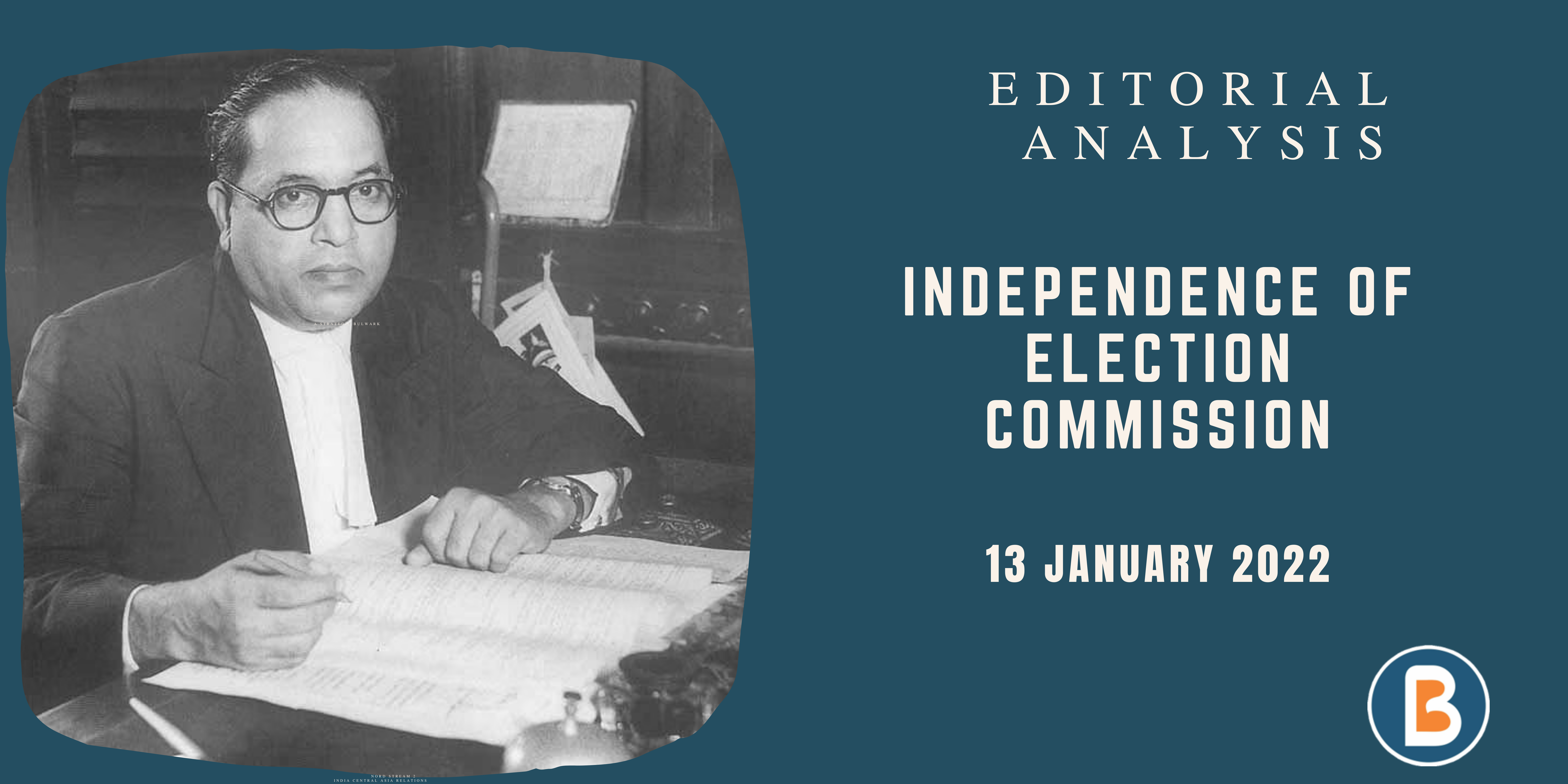Independence Of Election Commission
Context:
Reports of the Chief Election Commissioner and his election commissioner attending an informal meeting with the Principal Secretary to the Prime Minister late last year has brought renewed focus on the independence and impartiality of the Election Commission of India.
What is ECI?
- The Election Commission of India is an autonomous constitutional authority responsible for administering Union and State election processes in India.
- The body administers elections to the Lok Sabha, Rajya Sabha, and State Legislative Assemblies in India, and the offices of the President and Vice President in the country.
Background:
- Part XV of the Indian constitution deals with elections and establishes a commission for these matters.
- Article 324 to 329 of the constitution deals with powers, function, tenure, eligibility, etc of the commission and the member.
Structure of the Commission
- Originally the commission had only one election commissioner but after the Election Commissioner Amendment Act 1989, it has been made a multi-member body.
- The commission consists of one Chief Election Commissioner and two Election Commissioners.
- They have a fixed tenure of six years, or up to the age of 65 years, whichever is earlier.
- They enjoy the same status and receive salary and perks as available to Judges of the Supreme Court of India.
- Appointment: The appointment of CEC and other Election Commissioners shall be made by the President.
- Judges of High Courts and SC, CEC, Comptroller and Auditor General (CAG) may be removed from office through a motion adopted by Parliament on grounds of ‘proved misbehavior or incapacity’.
- Removal requires a special majority of 2/3rd members present and voting supported by more than 50% of the total strength of the house.
- The Constitution does not use the word ‘impeachment’, for the removal of the judges, CAG, CEC.
Changes to Appointment Procedure
- Given that ECI is a very important institution in holding up edifice of Indian Democracy, changes in appointment procedure should be done to strengthen ECI’s independence, neutrality and transparency. Apart from enacting a law in 1991 which was subsequently amended to enlarge the number of Election Commissioners from one to three, Parliament has so far not enacted any changes to the appointment process.
- In the face of legislative inaction, there is now a possibility that the judiciary will force Parliament’s hand.
- Three writ petitions are urging Supreme Court to declare that the current practice of appointment of ECs violates Article 14, 324(2), these petitions argue for an independent system for appointment procedure as recommended by previous Law Commission and Various committee reports.
Nature of ECI:
- Election Commission not only conducts elections but also renders quasi-judicial functions so executive cannot be a sole participant in appointment of members of Election Commission as it gives unfettered discretion to ruling party.
- Hence, establishing a multi-institutional, bipartisan committee for fair and transparent selection of ECs can enhance independence of ECI.
- Such a procedure is already followed with regard to other statutory bodies such as Chief Information Commissioner, the Lokpal, the CVC.
Way Forward:
- The existing veil over the appointment process of ECs potentially undermines the very structure on which our democratic aspirations rest.
- Parliament should formulate a law that establishes a multi-institutional, bipartisan Collegium in selections.
- Separation of powers is the gold standard for governments across the world.
Source: THE HINDU.




